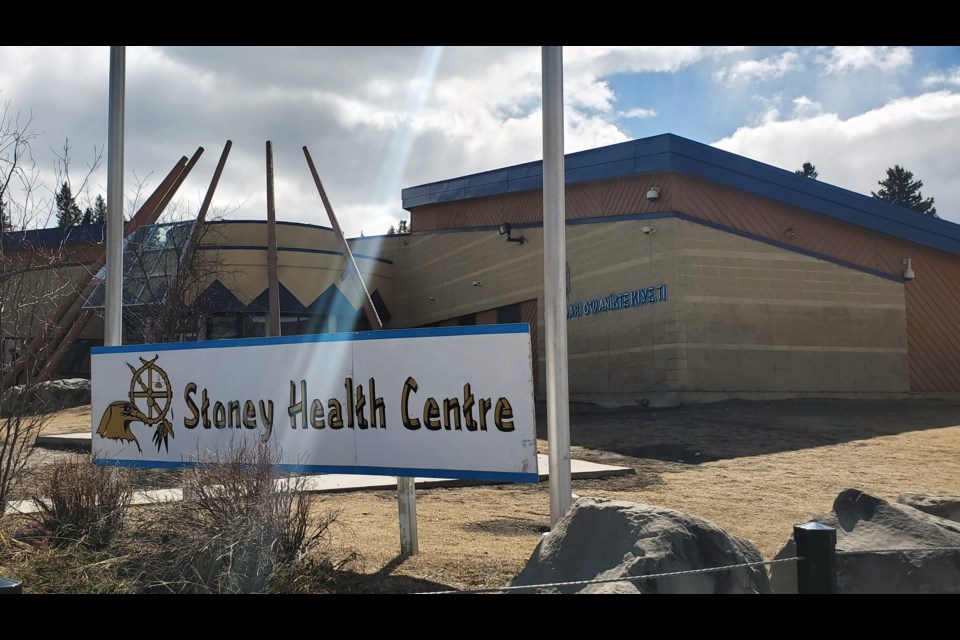STONEY NAKODA – Mînî Thnî’s first online sobriety support group is open to all and people are tuning in from as far as Germany and New Zealand to attend.
Mînî Thnî Virtual Wellbriety was started earlier this year by TJ Powder, substance and community support worker with Stoney Health Services (SHS), after he transferred from a position with the health authority’s crisis support team.
“There were no AA [Alcoholics Anonymous] meetings or any meetings like that out here in Morley,” said Powder. “I’m in recovery as well, and I’ve never had access to supports like that.”
He and a former colleague began brainstorming ways they could offer a support service without someone having to leave the reserve or their own home.
On April 13, they offered the first of what would become a weekly series following teachings of the book The Red Road to Wellbriety: In the Native American Way, a collaborative effort that came to be from many Indigenous people who shared their recovery stories, prayers and encouragement. Contributors include the late Stoney Nakoda elder Sykes Powderface, who leaves behind a long legacy of cultural knowledge-sharing in the First Nation and surrounding communities.
Sykes helped to shape and provide knowledge to the Mînî Thnî Virtual Wellbriety program prior to his passing in March of this year.
“It was a huge loss when he passed away,” said Powder. “I’ve worked with many people in my life but he was one of my favourites. He spoke our traditional language and English and contributed so much to what we’re building.”
The book itself is based on the Wellbriety Movement established by U.S.-based White Bison, which provides sobriety, recovery, addictions prevention and wellness learning resources to Indigenous communities worldwide.
“The book follows the teachings of the medicine wheel and is like a culturally appropriate 12 Step program for Indigenous men and women,” said Powder.
The Wellbriety program also offers access to pre-treatment sessions and to sessions that help with re-entry into the community after treatment.
Attendance to the weekly Zoom meeting started off slow, but as more people caught wind, it has slowly grown to as many as 15 to 20 attendees each week.
Powder said most participants are between the ages of 24 and 30, and join from Mînî Thnî. However, because the Zoom meeting is listed on White Bison’s website and SHS also advertises it online, some have tuned in from overseas.
“I thoroughly enjoy when I get to meet someone from like Germany,” said Powder. “It’s very unexpected but it’s great.
“It goes to show that this knowledge isn’t just valuable for our community, but others too.”
The program was initially only available to ages 18 and up, but Powder said it was apparent through some of his other work with the SHS harm reduction team, that they should open it up to a wider audience.
They made the decision to do so after starting up the sessions again following a brief summer break.
“I had started working with 16-year olds, 17-year olds and saw some of these issues,” said Powder. “So when we started it back up again in September, we opened it to everyone.”
The Wellbriety group talks about a variety of addictions, including alcohol and drug abuse.
The benefit of hosting it over Zoom is it offers some anonymity to those who wish to attend discussions without revealing their faces or names if they choose not to. Powder said most tend to opt for anonymity.
In the future, Powder said he hopes to be able to offer an in-person session as well, as not all are able to join the online meeting or prefer face-to-face interaction.
Mînî Thnî Virtual Wellbriety runs every Wednesday from 6:30 p.m. and can be joined over Zoom. Those interested can reach out to Powder at [email protected] or look for meeting details on SHS’ Facebook page.
The Local Journalism Initiative is funded by the Government of Canada. The position covers Îyârhe (Stoney) Nakoda First Nation and Kananaskis Country.




